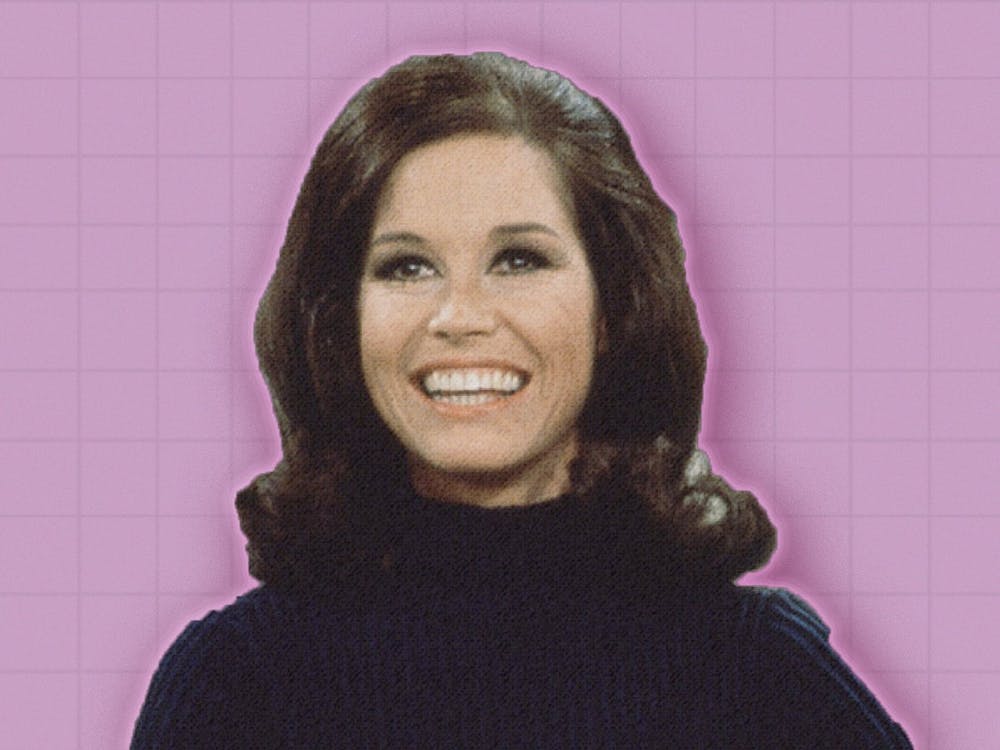Recently, I read Sydny Long’s staff note on the ever-changing personal definition of femininity in an overwhelming patriarchal world. Beyond being a beautifully written piece on womanhood, it reminded me of my own struggles throughout my teenage years with finding my identity.
When I was little, one of my absolute favorite TV shows was “The Mary Tyler Moore Show.” I remember countless nights watching season after season with my parents, until I seemed to know the show by heart. It stars 30-year-old Mary Richards (Mary Tyler Moore), an associate producer at WJM-TV, the lowest-rated station in Minneapolis. The show chronicles her career struggles and her humorous relationships with friends and colleagues. Revolutionary for its time period and even still for today, Richards is unmarried and childless, remaining, above all, focused on both her career and her future.
What I have only recently come to realize is how much that TV show shaped my conception of womanhood. Mary Richards epitomizes Long’s notion of “not like the other girls.” She does not care about the traditional path, one of domesticity and obedience, and instead carves out her own. Richards left relationships that compromised her career and challenged men in her office who do not take her seriously. I dreamed of being like her.
All the while, I was bombarded with notions of womanhood by my peers and social circles. I was taught to play into the stereotypes of femininity that further built up male privilege and perpetuated a sexist system. Male attention was a limited commodity, and I was in competition with every woman around me.
By the time I was 13, I had discovered that being an object for the male gaze was my primary objective. And, most disturbingly, I had accepted the role wholeheartedly.
Just like Long, it has taken me years of introspection to break down the internalized misogyny I had held so deeply and to allow myself, simply put, to be myself. I simultaneously wanted to be “not like other girls” while still beating out my fellow women for men who did not deserve me. I felt stuck between the only ideas of womanhood I had seen.
At the same time, the traits I held most dear to my character seemed to play against the two choices of femininity I had. Passion would be conflated with being dramatic, confidence with arrogance, love with being overly emotional. All of the attributes that structured my identity were thus reformed in a patriarchal society.
Coming to college, I have since recognized the danger of upholding certain role models, placing specific individuals on a pedestal of perfection. Mary Richards may have embraced opposing conceptions of womanhood, particularly for the time period, but I have learned that being a woman is not a binary between a stereotype and its opposite. Femininity can be — and should be — more complex than that.
Today, role models have become inspiring in specific characteristics rather than in their full character for me. I should not be obligated to fully indoctrinate myself in any one individual’s path to be both powerful and independent. My definition of femininity must, above all, be my own.
As I continue to pursue a career in law, I am constantly told that there is a sacrifice, one that Mary Richards makes throughout the show. If I want to be the best in my career, I must give up having a family and, most ideally, remain single. This decision seems the only viable option given to me and other women interested in similar fields and career paths.
Yet, I so strongly believe that this is not a choice I have to make. My life does not need to be an either or. While I will always love “The Mary Tyler Moore Show,” I don’t need to be Mary Richards to be the ideal woman for me. Richards, without a doubt, taught me that my identity as a woman does not make me weak or unworthy of being taken seriously. But I do not believe that pursuing traditional paths like motherhood or marriage while simultaneously holding a career presents a danger to a woman’s independence and potential growth in a job. It does not make me less of a woman, less capable in my career or less intelligent.
I have become proud to be a woman, particularly to be around such incredible female-identifying individuals. Even now, I continue to break down the patriarchal walls that held back aspects of my identity that I deemed flawed or imperfect. Womanhood does not exist as two extremes on a spectrum, nor is it solely defined by men. Each reformulation is infinitely more valuable in explaining the authentic reality for women. Womanhood should be colored and shaped by the unique and incredible journeys of each woman. It is only now that I am starting to understand that.
Get The Chronicle straight to your inbox
Signup for our weekly newsletter. Cancel at any time.

